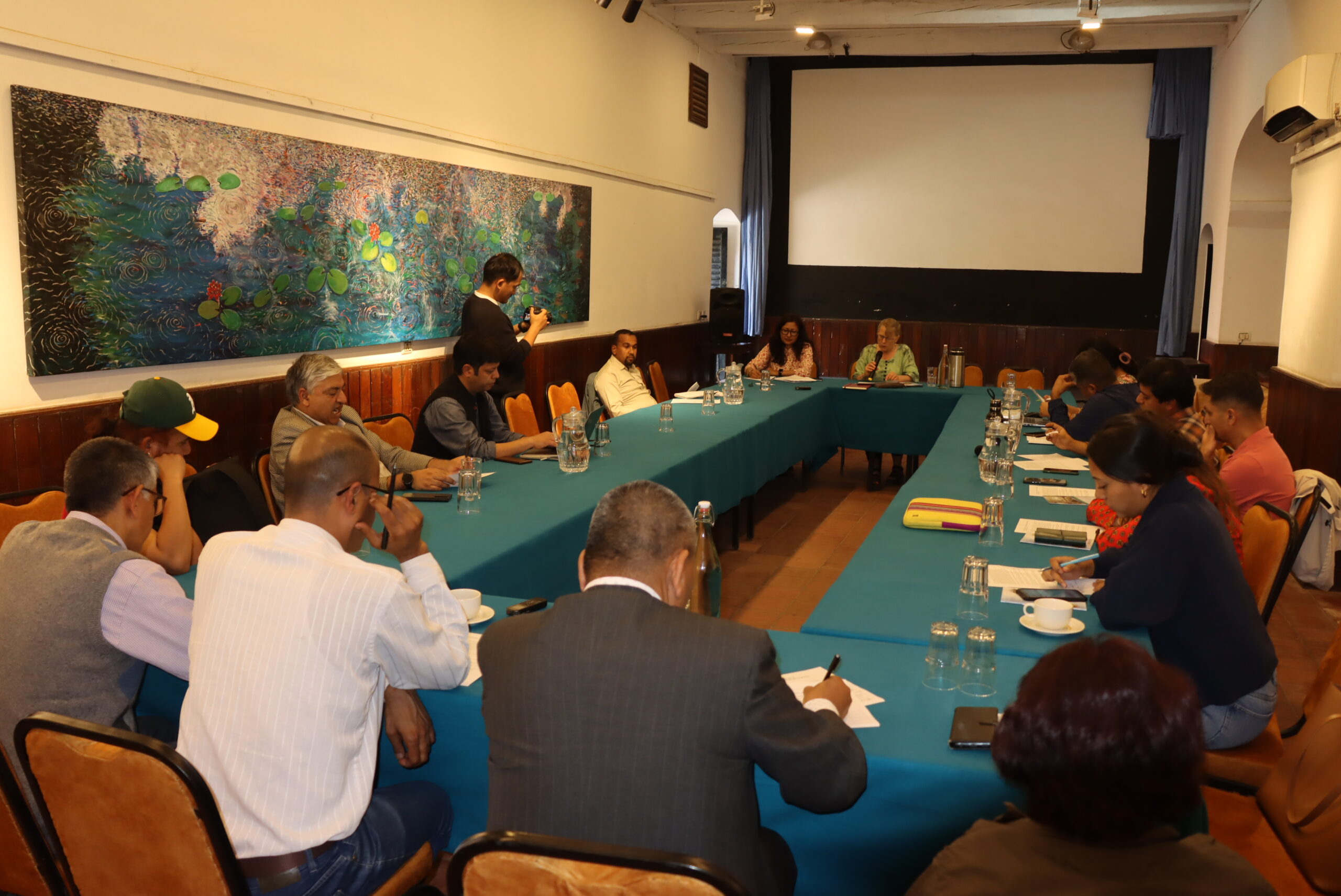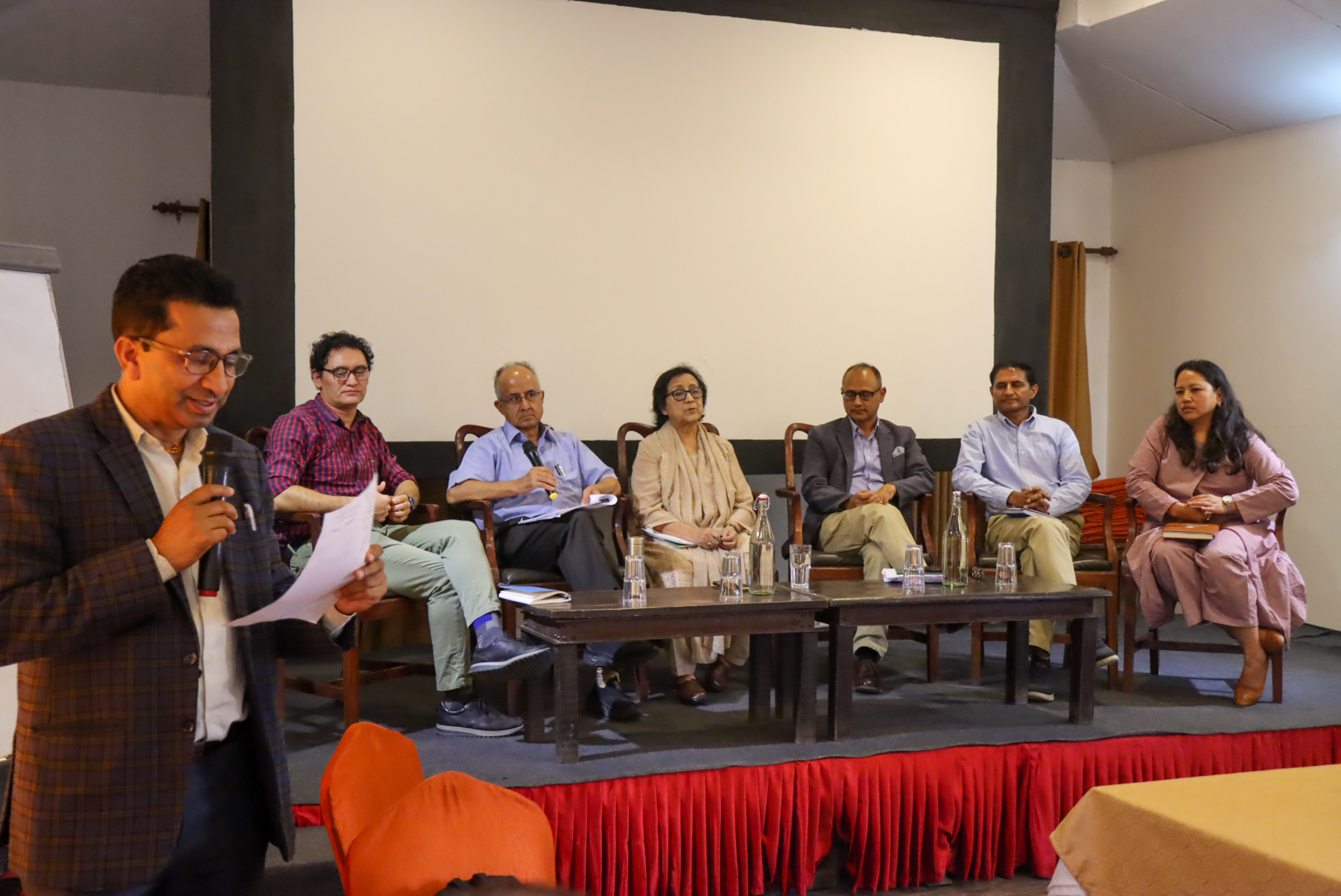Southasia Institute of Advanced Studies (SIAS), Institute for Study and Development Worldwide (IFSD), Nepal Water Conservation Foundation for Academic Research (NWCF), Australia India Water Centre, and Centre for Ecology Development and Research jointly organised third Himalayan Spring Water policy lab (HS-WPL) Forum on September 19 2022.
The event was organised with an aim to foster collaborative learning approaches among diverse stakeholders to find solutions to drying springs. There were three distinguished presenters from SIAS and NWCF.
SIAS researchers Monika Giri and Binod Adhikari presented their research insights on the contestation and trade-offs of Himalayan Spring uses. They focused on the increasing water stress in the Himalayan spring water uses, leading to competing demands and therefore on the increasing contestations over available water resources. To capture the issues of conflict and recent dynamics of water management, they highlighted the issues of Diktel municipality as a part of Justclime project. They further emphasized the need for conservation and revival of Himalayan springs to fulfil the growing urban and rural water needs in the future.
Ngamindra Dahal from NWCF shared about spring revival in Nepal, emerging issues and pathways as his research findings. He also mentioned about the impact of land use change on the springs, demand-supply conflicts due to the limited water resources. He stressed to recognize drying of springs as an issue immediately, adopt spring-shed management, and promote local innovations.
Overall, the session was very insightful where Professor Basanta Maheshwari, Western Sydney University, closed the session with his concluding remarks to focus on spring literacy, long-term participatory monitoring of spring with locals, and cooperative management of Himalayan springs.




